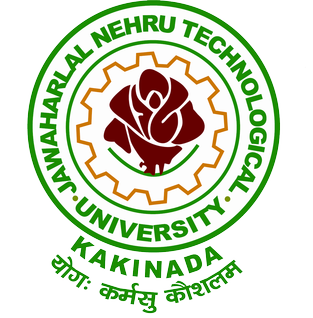
JNTU (Jawaharlal Nehru Technological University) was originally "The College of Engineering, Vizagpatnam" at the time of its establishment in 1946. It is now a sprawling campus of 110 acres, green with mango trees in the fast developing Port city of Kakinada, East coast of peninsula India. Kakinada has a rich political literacy and cultural heritage passed on through generations This college became a constituent of the Jawaharlal Nehru Technological University w.e.f 02-10-1972 through an act of legislature along with other sister institutions under the control of the then Director of Technical Education, Government of Andhra Pradesh. Earlier, it was affiliated to Andhra University. In the year 2003 the college has become autonomous.
The College is governed by the rules and guidelines provided by the university from time to time. The Principal is the administrative and the academic Head of the College. He is assisted by the Vice-Principal and the College Academic Committee in academic matters and the Deputy Registrar and the office staff in administrative matters. The day-to-day activities of the college are carried out by budgetary allocation from the University fund.
The college has made rapid strides since its formation and is playing a pivotal role in the technological advances of the region.
All the five engineering departments are provided with RCC roof buildings. Additional accommodation for Electronics and Telecommunications Engineering, Computer Science & Engineering and Electrical and Electronics Engineering departments is being provided through new buildings as annexes to the existing ones. Plans are afoot to accommodate teaching and non-teaching staff in newly constructed quarters in place of present 50 year old sheds.
The college provides hostel accommodation for nearly about 400 boys and 300 girls. Other amenities on the campus include Bank, Post-Office, dispensary, guesthouse, and play fields. The Research and Development activity in the College got a boost with the procurement of modern and sophisticated equipment under MHRD and AICTE schemes. Academically, the post-graduate programmes introduced in 1971 in each of the available disciplines have undergone changes in course-structure and syllabi to meet the demands of the current needs. A new under-graduate programme in Computer Science and Engineering has been introduced subsequently. Another post-graduate programme is added in each of the disciplines along with one in Computer Science and Engineering. Now, the college has five U.G. Programmes and Nine P.G. Programmes to its credit. In addition the college helps unemployed under-employed diploma and degree holders in Engineering to improve their qualifications through its continuing education programmes.


